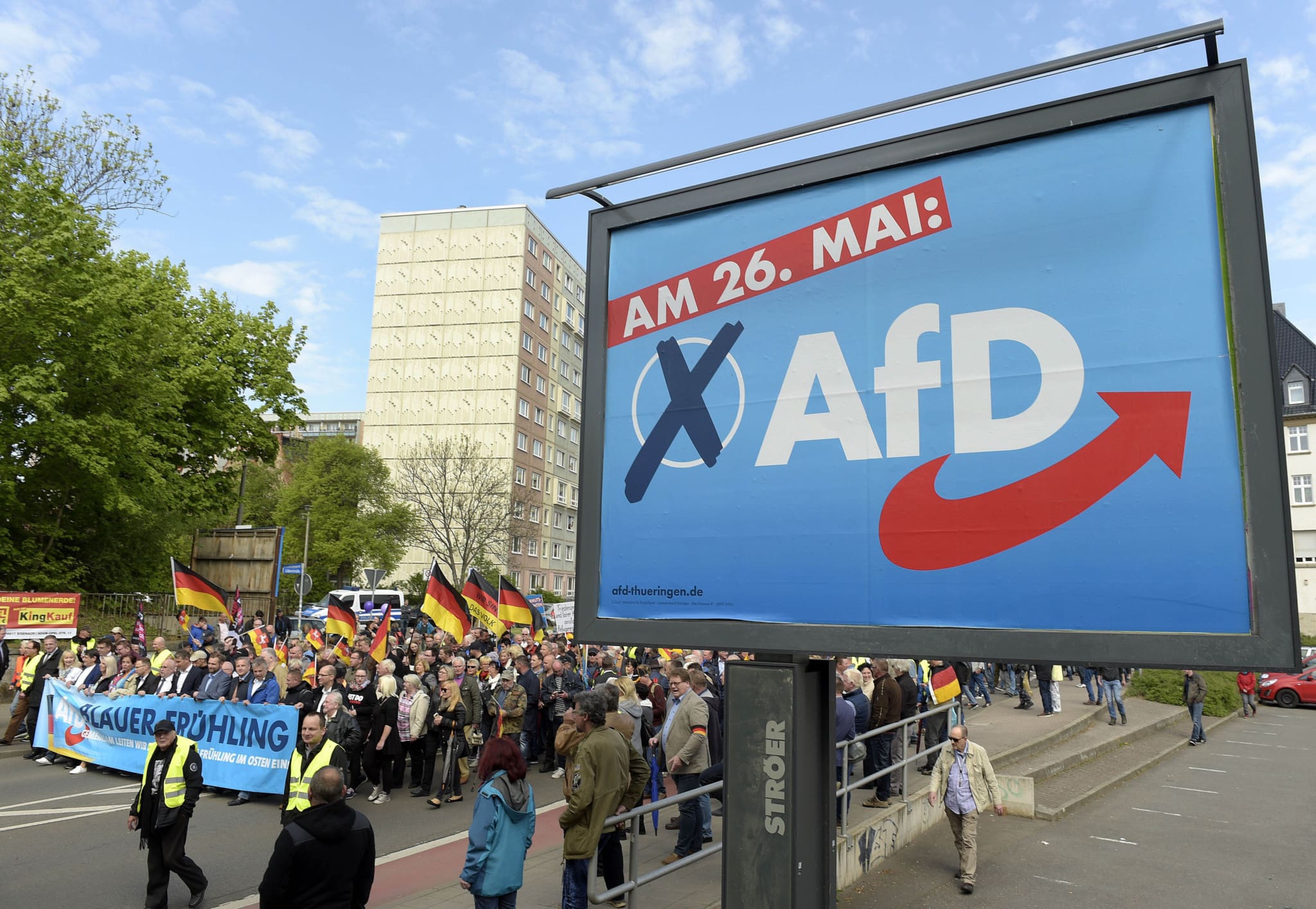Could conservatives also one day score a breakthrough in German politics? The Alternative for Germany party — which has faced extreme political pressure, including threats to ban the party entirely — is seeing a surge in support, particularly in what was once formerly East Germany. According to polling firm Insa, it is now the strongest political party in that entire region of the country, which is home to over 16 million people.
If there were federal elections next Sunday, AfD would reach 27 percent in the eastern federal states, while CDU would follow with one point less. SPD and the Greens would only get 15 and 14 percent, respectively. Since FDP only achieved 7 percent, only 36 percent would vote for the traffic-light parties there. The Left party would come in at 8 percent.
[pp id=49150]
However, AfD is also trending higher in western Germany where AfD now averages 12 percent. CDU holds the lead at 28 percent, while the Greens (21), and SPD (19) are also in front of AfD. FDP (8) and Left (5) trail behind. In Lower Saxony, where elections will be held on Oct. 8, AfD reaches 9 percent, according to Infratest dimap, one of its lowest results for AfD of any German state.
A total of 15 percent of Germans would vote for AfD, with the party’s support rising a point compared to just a week ago. The conservative party is now just three points behind the Social Democrats (SPD), led by Chancellor Olaf Scholz, which now stands at 18 percent.
AfD has experienced a steady positive trend in polling over the last months, with the party serving as a vocal critic of the left-wing government’s sanctions policy against Russia. The party has also called for an opening of the Nord Stream 2 gas pipeline between Russia and Germany; however, such a policy is likely no longer possible for the foreseeable future following a suspected sabotage attack on the pipeline that will keep it offline for some time.
[pp id=31060]
Specific cultural and economic factors have led AfD to be far more popular in the east of Germany than in the west. East Germans remain more skeptical of mass immigration and cultural trends from the West, but also tend to sympathize more with Russia. However, one of the greatest concerns in this region of Germany, which is driving popular support of AfD, is the current economic crisis, with inflation hitting east Germans far harder than those in the west of Germany due to the already lower incomes and poverty rates seen in the east.
The major parties in Germany have long said they would never form a coalition with AfD. However, the same cordon sanitaire applied to the Sweden Democrats (SD) in Sweden. And yet, after scoring over 20 percent of the vote earlier this month, SD has entered a power-sharing agreement that many in Swedish politics never thought would be possible.





